
The Secretary General of the Petrochemical Industry Employers' Association, appreciating the Ministry of Oil's new approach in cooperating with the private sector, said: "Following the Supreme Leader's emphasis, the Ministry of Oil, with a different perspective, put the issue of petrochemical companies' investment in the development of gas fields on the agenda."
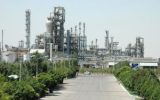
The 310,000-ton heavy polyethylene project of Tabriz Petrochemical is being implemented for the first time in the country with Iranian technical knowledge; this project is currently more than 78 percent physically advanced, and the production capacity of the complex's saleable products will more than double with the use of this plan.

The CEO of the National Petrochemical Company emphasized the strategic role of public relations in integrating the capacities of the petrochemical industry and said: "Public relations can transform the scattered achievements of the petrochemical industry into a promising asset for society and activists in this field by creating a coherent network among petrochemical companies."
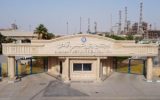
Abadan Petrochemical, as the first petrochemical complex in Iran, is facing a paradox between “oldness” and “efficiency” today, on the eve of its sixth decade of operation. This company, which was once a symbol of Iran’s industrial modernity, is now struggling with structural challenges in the production chain and a food supply crisis, despite its 14 percent share in the country’s PVC supply; a situation that has tied the survival of this strategic unit to ownership reform and infrastructure modernization.

The petrochemical industry has entered a new phase of policymaking and implementation under the 14th government; a phase in which the mere development of nominal capacities has given way to a focus on completing the value chain, increasing real production, and enhancing domestic value added.

Production in Khorasan, Lordegan, Kermanshah, Zagros, Sabalan, Kimia Pars, and many other urea and methanol petrochemical plants has dropped to zero; why? Because the only prescription of all governments to overcome the gas crisis is to close the gas valve of petrochemical plants.

The CEO of Kharg Petrochemical Company considered the assignment of utility pricing to the National Petrochemical Industries Company after several years as confirmation of the Ministry of Oil's special view of the private sector, saying: "This measure can increase investor confidence and pave the way for the development of new projects."
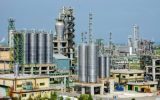
The Deputy Chairman of the Energy Commission of the Islamic Consultative Assembly considered the transfer of arbitration in pricing ancillary services to the National Petrochemical Industries Company as an effective solution for further developing this industry, and said: Iran has a suitable capacity for expanding complementary petrochemical industries, and if it moves towards balanced development, significant benefits can be achieved.
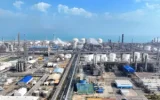
The member of the Board of Directors of the Energy Commission of the Islamic Consultative Assembly, emphasizing the prominent role of the petrochemical industry in the development, job creation, and foreign exchange earning of the country, said: "Undoubtedly, determining the duties and arbitrating the pricing of petrochemical ancillary services will help attract investment in this industry."
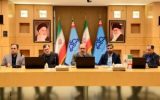
The energy optimization manager of the National Petrochemical Industries Company announced the increase in the participation of gas subscribers in the "10% energy consumption reduction" campaign and said: "This plan is a five-year roadmap for resilience; a trust that has been placed in the hands of the people with the cooperation of petrochemical companies and is being implemented with full stewardship, transparency, and supervision."










